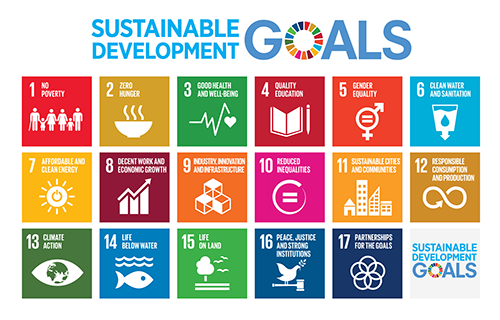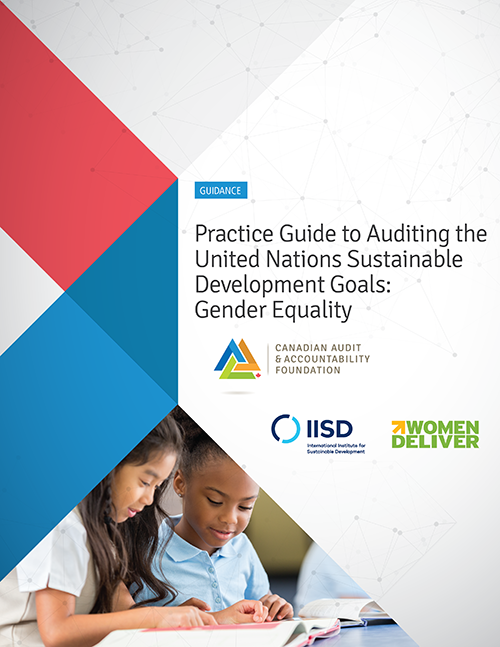|
|
Practice Guide to Auditing the United Nations Sustainable Development Goals: Gender Equality
|
 |
Gender inequalities affect us all. When girls and women do not have equal access to resources and equal opportunities to participate in decision making, their families, communities, and countries feel the social and economic costs. Good progress has been made, in both developed and developing countries, but deep-rooted inequalities persist in all societies and countries. Women lack access to decent work and face occupational segregation and gender wage gaps. They are under-represented in political and economic decision making, as well as in statistics and data. In many situations, they are denied access to basic education and health care and are victims of violence and discrimination. With girls and women representing half of the world’s population—and half of its potential—the impact of their empowerment could be tremendous. This potential exists in all countries. In fact, a recent report from the McKinsey Global Institute estimated that advancing gender equality in Canada could boost the country’s annual GDP by $150 billion in 2026, a 0.6 percent increase to annual GDP growth. Gender equality and the United Nations 2030 Agenda for Sustainable Development 
“Quite simply, achieving sustainable development in its three dimensions—economic, social, and environmental—is not possible without gender equality,” explained Scott Vaughan, President and CEO of IISD. This need for gender equality is recognized in the United Nations 2030 Agenda for Sustainable Development. Adopted by UN member states in September 2015, the 2030 Agenda calls for actions to be implemented by all countries and all stakeholders. The Agenda includes 17 Sustainable Development Goals (SDGs). Achieving gender equality and empowering women and girls is both a standalone goal (SDG 5) and a crosscutting theme that will influence, and be influenced by, progress on the other goals. Our new guidance will support auditors in their role Now that UN member states have committed to the SDGs and this global push for sustainable development is underway, legislative auditors will have an important role to play. The UN and the International Organization of Supreme Audit Institutions (INTOSAI) are calling on supreme audit institutions to audit the efficient, effective, transparent, and accountable implementation of the 2030 Agenda. Our new Practice Guide is designed to help auditors plan performance audits focusing on gender equality as part of the 2030 Agenda. It provides context to understand the subject of gender equality, including its relation to sustainable development and its place within the 2030 Agenda, and guidance and suggested practices for planning an audit. The guide considers two scenarios: first, an audit focused primarily on gender equality, and second, an audit whose principal focus is another SDG-related subject—such as poverty, education, health, agriculture, or economic development—that has a link with gender equality. It includes an illustrative example of auditing education (SDG 4) and gender equality. In the Message from the Minister of Status of Women that opens our guide, the Honourable Maryam Monsef writes that she will be looking to the insights of legislative auditors: At this exciting moment, as our government and others around the world are beginning to implement the ambitious 2030 Agenda, we will surely benefit from the recommendations auditors offer. Together, it is possible for us to eliminate barriers to gender equality, close gender gaps, and build a more equal future. Gender equality is a priority of the Government of Canada, as expressed in the Feminist International Assistance Policy announced by the Honourable Marie-Claude Bibeau, Minister of International Development and La Francophonie, in June 2017. For Canada, Minister Bibeau stated, promoting gender equality and empowering all women and girls “is the most effective approach to reducing poverty and building a more inclusive, peaceful and prosperous world.” This Practice Guide was produced with funding from the Government of Canada, provided through Global Affairs Canada as part of its support of our International Legislative Oversight Program. The Government of Canada is our longstanding funding partner for our international work, which dates to 1980 and has provided support to audit offices in more than 50 countries. This guide, which is part of our series of Practice Guides, emerged from our ongoing contributions to INTOSAI’s initiatives to encourage and support audits of the SDGs. As a continuation of our international program’s support of gender equality, it builds upon our earlier Practice Guide to Auditing Gender Equality, published in 2016, to incorporate new global developments and focus specifically on the SDGs. The contributions of IISD and Women Deliver greatly enriched this guide and we thank these organizations for their partnership. “I believe auditors will find the expertise shared by IISD and Women Deliver very valuable for understanding gender equality and the SDGs,” said John Reed, President and CEO of the Canadian Audit and Accountability Foundation. “We hope this guide will be a useful tool for auditors in Canada and around the world. Their work will be vital for measuring progress towards gender equality and the other SDGs, making recommendations to improve government programming, and holding governments accountable for their commitments to the 2030 Agenda.” “All evidence shows,” said Katja Iversen, President/CEO of Women Deliver, “that when the world invests in girls, women, and gender equality, it creates a possible ripple effect that lifts up entire countries and communities. Girls and women are powerful agents of change and crucial for all the Sustainable Development Goals. Auditors have an important role to play for positive change in the world and Women Deliver is thrilled to work with the Canadian Audit and Accountability Foundation on this Practice Guide.” |



